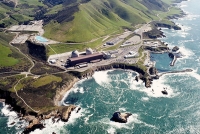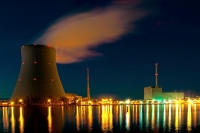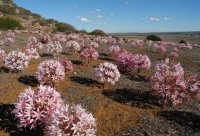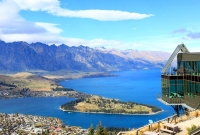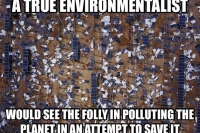Our People
Environmentalists for Nuclear Energy - USA, EFN-USA, is a non-profit organization based in Denver, Colorado, USA. The President is John Shanahan. We are affiliated with and align our values and mission with Environmentalists for Nuclear Energy, EFN, in Houilles, France. Bruno Comby is Founder and President.
We work with environmental scientists, economists, political scientists, sociologists, naturalists, conservationists. and specialists in nuclear energy, nuclear medicine, radioisotopes, and low-dose radiation, We focus on the most significant issues in the United States and what the United States should be doing to help make a better world. We work with advocates who are students and professionals in other fields, who are interested in the goals of EFN, EFN-USA and other EFN affiliates.
We have a 12 person Board of Directors. They live in the United States, France, India and South Africa. We have a two person staff in the United States: a full time all volunteer president and a part time part remunerated, part volunteer director of technical web design and video production. Everyone is dedicated to helping you learn about and appreciate the fascinating aspects of nuclear energy and nuclear science, especially as they relate to improving the living standards for all humanity and cleaning up and protecting the environment.
Topics We Cover
NUCLEAR ENERGY AND SCIENCE
Nuclear Energy Today
Environmentalists for Nuclear - USA believes nuclear energy is awesome! Our current technology is robust, safe and economical. Unfortunately, it is usually perceived by the general public as something to be feared rather than revered. Our goal is to help alleviate those fears by offering up-to-date facts and expert information, in place of the over-exaggerated, ill-informed, and out-right fictional presentations in the media and on the web.
To understand where we are now and to realize our future we must first understand our history. One of the reasons nuclear energy gets a bad rap is its association with the atomic bomb. The atomic bomb was the first practical use of nuclear fission and a remarkable force of extremely frightening proportions. It led to a great fear of nuclear power as a source of energy, and at the same time spawned similar fears of radioactivity and associated radiation.
This legacy, and the perception that nuclear energy is like an atomic bomb just waiting to go off, have helped to enhance fears and sensationalize negative aspects of nuclear energy that are unfounded. Often, the ill-informed media have unwittingly scared the general public and an equally ill-informed government.
The superior economics of nuclear power plants have been tempered by the high cost of providing extraordinary designs and operations. Instead of easing fear, our attention to safety only reinforced unwarranted fears in the public sector.
Perhaps the greatest challenge faced by supporters of nuclear energy today is the need to set misconceptions straight and eliminate unfounded fear. The articles on this web site attempt to do just that by offering up-to-date information on issues from professionals who have working knowledge, factual data, and extensive skills that make them an authority in their field.
Nuclear is the energy source of the cosmos, and it should grow as a principal energy source in the present and be the energy of our future.
Nuclear Energy Tomorrow (Future)
Nuclear power is an awesome energy source, and by comparison, most other energy sources are backward and primitive. Unless we allow fear and backward thinking to get in the way, nuclear energy is the answer for cheap, reliable, self-sustainable energy for all.
New design concepts offer the promise of even better nuclear energy which will be more economical with inherent safety and convenience built-in. As a society we are still grappling with the issue of nuclear waste, with siting a repository being one of the political footballs of the century. We can provide enhanced, safe, temporary storage and depend on new reactor concepts in the future to burn today’s “spent fuel” and produce energy for many decades.
New design concepts will move us into thorium technology which will supplement uranium technology and offer a virtually inexhaustible energy supply with inherent safety and superior economics. Under Nuclear Energy Future you will find articles and presentations that discuss these new designs and concepts as well as the inherent safety aspects of existing designs, and learn how they will be used to ramp up nuclear power for future generations.
Nuclear energy is a plentiful, inexpensive energy source that will help the world advance out of its current socio-economic imbalance.
Radioisotopes
One of the unfounded accusations hurled at the nuclear industry following our nuclear bomb legacy is that radioisotopes are dangerous, unnatural and in no way beneficial. People who have had their lives saved by medical radioisotopes would disagree. Radioisotopes are all around us in natural forms. Even natural plutonium exists. Radioisotopes and radioactivity have always been a pervasive part of our environment and would continue to be even without any nuclear technology. The articles under the Radioisotopes heading deal with the nature and use of radioisotopes.
Radiation, Low Dose and Low Dose Rate
There is evidence that we actually cannot live without a little radiation.
Historically it was believed that any amount of radiation was bad for people. All research was aligned with this idea and the first model created to gauge a person’s heath risk due to radiation exposure was the Linear, No-Threshold model. This model supposes a linear relationship between the likelihood of developing health effects (e.g. latent cancers) where this likelihood starts at zero for zero exposure and rises in linear proportion to exposure thereafter. Out of this grew the design and operational concept of ALARA, As Low as Reasonably Achievable.
What ALARA failed to take into account was the fact that we are all exposed to radiation everyday via natural sources such as cosmic rays, natural isotopes in the soil or rock, and even gases from uranium deposits. Most of us have been subjected to radiation in X-rays and other diagnostic procedures which adds to this constant low-level exposure. Furthermore, there is considerable evidence that the Linear, No-Threshold model is incorrect.
The possibility of meeting anyone who has worked in the nuclear industry who was diagnosed with cancer due to radiation exposure at a nuclear plant, or a doctor who has treated such a patient, is slim to none. However, there are many nuclear professionals and others who will confirm that they were cured of cancer using radiation.
As nuclear energy and nuclear medicine move forward we must reject the notion of Linear, No-Threshold radiation effects. Articles and presentations under the Radiation Low-Dose heading offer insights that will explain the justification of rejecting ALARA.
PEOPLE
Environmentalists for Nuclear Energy - USA focuses on the benefits of nuclear energy for people and the environment, and the simple reality that the world is going to continue to use fossil fuels as long as practical. Our video by Douglas Lightfoot, "How Energy Makes A Difference," and many other articles demonstrate the tremendous benefits for the environment, quality of life and population stabilization with the availability of plentiful, clean energy. Some activists and organizations in the "environmental movement" look past the desperate needs of billions of people to demand their way of supposedly making a better world through stopping use of fossil fuels, stopping use of advanced nuclear power and stopping scientific research in food and plant science. EFN-USA will explore the living standards of people around the world and how the United States can really help people through nuclear energy and nuclear science. Right now, Russia, China, and Korea are leading efforts to bring nuclear power to people around the world. That is important. But a lot more help is needed, especially from the United States. Due to tolerance for anti-nuclear advocate demands and the disdain for nuclear power by people in key positions in non-profit organizations and government, the United States has all but stopped helping the world rise to a better standard of living.
ENVIRONMENT
The most important environmental issues are clean air, water, and land to support life at its best, preserve biodiversity and wildlife habitat, and maintain an environment that befits the universal dignity of the human race. The Earth has repeatedly gone through long periods when it was warmer and colder than now, with much higher total concentrations of atmospheric CO2. Many more conflicts arise during cold periods because of reduced areas for living and food production. One of America's best known man-made global warming scientist advocates described the weather in his home state of Massachusetts in February 2015 as "ENDLESS WINTER." He photographed people walking on the frozen saltwater in the ocean. The science of man-made global warming is not settled. Consensus is the enemy of science. Benefits from use of fossil fuels, especially for those who don't have good access to them now, outweigh real problems they cause in many instances. Plentiful nuclear energy helps humanity deal with climate change from all causes. At EFN-USA, we focus mainly on urban environmental, agricultural environmental, wildlife environmental issues and the need for clean air, water and land everywhere. That means not shipping the dirty work elsewhere, forgetting about it, and demanding impractical programs like Carbon Capture and Sequestration, and Carbon Cap and Trade. It is imperative that the world identify real, pressing problems facing the environment and humanity and work to solve them. The new website: www.ecomodernism.org may be a bright dawning of two sides coming together with more practical and achievable ideas.


